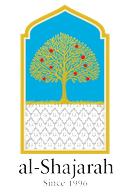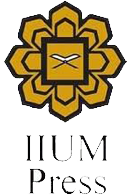TEACHING ISLAMIC VALUES THROUGH PROBLEM SOLVING IN MATHEMATICS: A CASE STUDY
DOI:
https://doi.org/10.31436/shajarah.v0i0.762Keywords:
Mathematics and Islamic values; Akhlaq, morality and values; Problem Solving; Values across curriculum.Abstract
This paper presents the findings of a study which was performed to develop students’ Islamic values through a series of problem solving activities, incorporated in the teaching of mathematics. Students were presented with mathematical problems that allow discussions on some moral predicaments, posed into a problem of the day lesson. This pre-experimental design study involved a combined Year 4 class of 35 students from one international school as research participants. Two teachers participated directly in the study, while some others acted as observers. Both qualitative and quantitative data in the form of observation field notes, interview data (from both students and teachers), tests, questionnaires and observation checklists results were collected. The data were used to answer the research questions on changes in students’ performance and attitude, both in the mathematics topics taught and also on their moral reasoning. The results show increased but non-significant scores in mathematics. There are also improvements in moral reasoning based on students’ written answers of some moral questions, which is also supported by the interview data. The observation data display a gradual improvement of students’ in-class behavior in terms of their attitudes towards each other and towards the tasks and activities given. This study implies the possibility for students to learn about morality and values in a mathematics class through careful planning of tasks and activities. It highlights the belief that values can be learned across the curriculum, which is one of the important factors in building a nation of caring and civil society.



 Al-Shajarah:
Al-Shajarah: 
